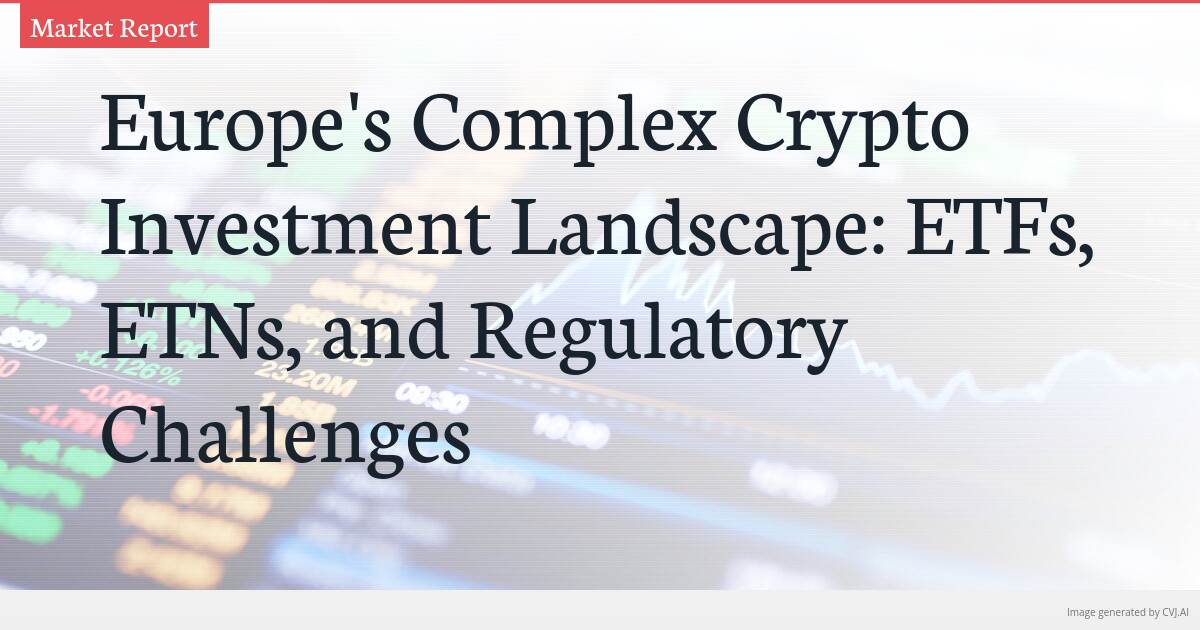This summary text is fully AI-generated and may therefore contain errors or be incomplete.
European Investors Seek Access to Bitcoin and Cryptocurrencies
After years of anticipation, the United States Securities and Exchange Commission has finally approved a wave of spot Bitcoin exchange-traded funds (ETFs) for trading on American stock exchanges. These ETFs offer both institutional and retail investors a regulated and convenient way to gain exposure to Bitcoin without the complexities of directly buying and storing it themselves. However, the European landscape for accessing Bitcoin and other cryptocurrencies remains relatively complex for investors.
Challenges in Europe
Due to the Undertakings for Collective Investment in Transferable Securities (UCITS) regulation, if an ETF invests exclusively in Bitcoin, it will not be approved in Europe. This regulation aims to protect investors from total financial losses by requiring European fund products to be diversified and not invest too heavily in a single asset class or product. As a result, European investors have to rely on alternative products such as Bitcoin exchange-traded notes (ETNs).
European Investment Options
Several European investment companies offer alternative investments in Bitcoin in the form of ETNs. These products are easily tradable on regulated stock exchanges, providing investors with familiar access to crypto assets. However, from a legal perspective, ETNs do not have the same legal protection as ETFs, which raises concerns about customer funds in the event of an issuer’s insolvency.
Potential Future for Bitcoin ETFs in Europe
According to experts, it is unlikely that there will ever be a pure Bitcoin UCITS ETF in Europe due to the current regulatory directives. However, there is a possibility that a basket of cryptocurrencies could be approved as a UCITS fund. This would require the establishment of recognized crypto indexes that meet UCITS requirements and could serve as the basis for the ETF.
Diversified Crypto Investment Options in Europe
Despite the absence of a Bitcoin ETF, Europe offers various ways to invest in Bitcoin and crypto in general. With around 40 products in eight EU countries, including indexes, single asset products, liquid staking products, and shorts, European investors have regulated access to crypto in an ETN/ETF wrapper. This diverse range of investment options demonstrates Europe’s leading position in providing retail and institutional investors with access to cryptocurrencies.
Conclusion
While the approval of spot Bitcoin ETFs in the United States marks a significant development for investors, the European landscape presents its own set of challenges and opportunities. As the demand for cryptocurrencies continues to grow, European investors have access to a range of regulated investment products, despite the absence of a Bitcoin ETF. The future of Bitcoin ETFs in Europe remains uncertain, but the availability of alternative investment options demonstrates the evolving nature of the crypto market in the region.
📎 Read the original article on cointelegraph.com


